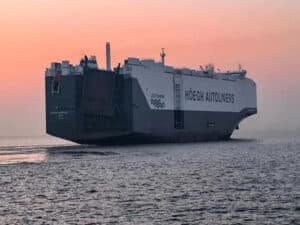
Decision on sulfur cap limit looms at IMO MEPC
Written by Marine Log Staff
OCTOBER 24, 2016—There will be a number of important environmental issues on the agenda at the Marine Environmental Protection Committee (MEPC 70) this week at the London headquarters of the International Maritime Organization (IMO). Among the topics discussed will be proposals to adopt a mandatory regulation for ships to record and report their fuel consumption. The requirements for ships to record and report their fuel consumption were approved at the last session (MEPC 69).
Under the proposed draft amendments, ships of 5,000 gross tons and above will be required to collect consumption data for each type of fuel they use, as well as other, additional, specified data including proxies for transport work. The aggregated data will be reported to the flag state after the end of each calendar year and the flag state, having determined that the data has been reported in accordance with the requirements, will issue a Statement of Compliance to the ship. Flag States will be required to subsequently transfer this data to an IMO Ship Fuel Consumption Database. IMO would be required to produce an annual report to the MEPC, summarizing the data collected. The data will be masked so that individual ships cannot be identified.
Also on the MEPC’s agenda will be a decision regarding the implementation date (possibly 2020 or 2025) for the global 0.50% m/m sulfur cap for fuel oil. A Steering Committee consisting of 13 Member States, one intergovernmental organization and six international non-governmental organizations has overseen the review.
The MARPOL regulation limiting sulfur oxide (SOx) emissions from ships provides for a 0.50% global cap to be implemented on January 1, 2020, but also requires a review of the availability of the required fuel oil to be carried out and concluded by 2018. Depending on the outcome of the review, the implementation date could be deferred to January 1, 2025.
With the Ballast Water Management Convention entering into force in September 2017, implementation of the treaty will be under consideration. The MEPC is expected to consider revised Guidelines for approval of ballast water management systems.
Also up for discussion are proposals to designate a Particularly Sensitive Sea Area (PSSA) in Papua New Guinea and to designate the North Sea and Baltic Sea as emission control areas for nitrogen oxides (NOx).





Leave a Reply
You must be logged in to post a comment.